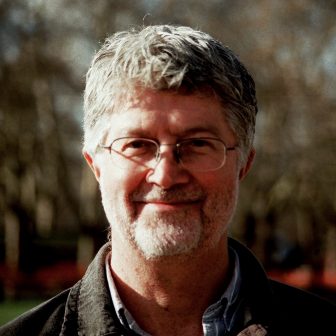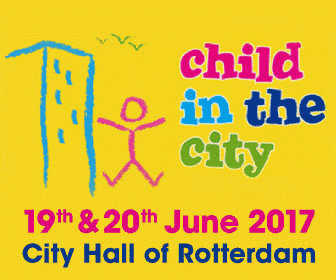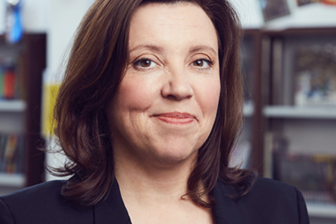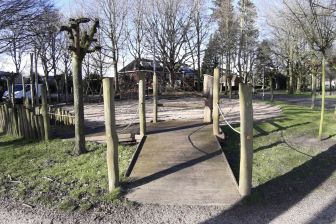
5 challenges for the child friendly city movement
In the second part of this interview with Adrian Voce, President of the European Network for Child Friendly Cities, ahead of next week’s Child in the City international seminar on urban planning, he sets out what he sees as the key challenges for the network and for the wider movement for child friendly towns and cities.
 Adrian, what do you think are the key challenges for the child friendly city movement?
Adrian, what do you think are the key challenges for the child friendly city movement?
There are many practitioners and academics – and some policymakers too – better qualified to answer this than I am. Some of them will be speaking in Rotterdam and so I reserve the right to revise my assessment during the course of the event!
However, in addition to continuing doing more of what we have done very effectively already – researching the evidence of what works and documenting and reporting innovations and good practice – I would say that there are five key challenges for our movement:
1. Reframe the debates about childhood
We have to try and reframe the debates about children and childhood –from one which either problematises them almost as a sub-species or a minority community that we don’t quite know how to deal with, or one which can only conceive of them as (employable) adults-in-the-making. The new social studies of childhood have helped to challenge the traditional (and not so traditional) constructs and helped to cultivate a wider understanding that children are not ‘the future’. They are here among us, with needs, aspirations and rights as people now. Neither are they, in any definitive sense, separate and distinct from adults. Children are all of us, only younger. Once society better appreciates the simple truth that children’s needs and rights are everybody’s needs and rights at a certain period in life, the better it will be able to respond to them.
2. Influence policymakers
We have to effectively engage politicians at different levels of government and influence their decisions on investment in public infrastructure and the vital role of the state in protecting the common spaces and shared places that are so important to a child-friendly public realm. Under austerity economics this is especially tough and I think we must therefore align ourselves with the broader advocacy networks making the arguments for policies, strategies and plans for towns and cities that consciously promote community cohesion through accessible, shared spaces.
3. Position our campaign
In particular, this means becoming ever more aligned with pedestrian, cycling and green space campaigns, whilst also retaining our distinct and specific responsibility to be advocates for children, who are not automatically considered within any of these movements unless we make it so.
4. Balance participation with effect
I think we have to find a better balance between advocating for children’s active participation within planning and other policymaking processes, and making the case, with or without their involvement, for the kind of changes to the public realm that we know can lead to improvements in their lives. Our responsibility is to work for the greater recognition of all children’s rights within public policy, not just their right to have a voice in it. My personal view is that there has been an emphasis in some parts of the children’s rights movement on the pre-eminence of article 12, sometimes at the expense of other rights. Most children have no interest, certainly in their primary years, in participatory democracy; rather they need us, as advocates, to take responsibility for representing them in policy arenas and we should not confer less legitimacy on well-researched, effective proposals just because they have not had the direct input of children.
5. Collaborate across sectors
Finally, and most practically, I think we must endeavour to build the kind of crosscutting, collaborative alliances and partnerships that are so in evidence at our conferences, within the professional and policymaking spheres that govern and shape our public realm. Simple, common understandings about how the world looks and feels to a 3, 8 and 13 year-old, for example, translated into tenets of good practice within the key professions, and into first principles of public policy, would change the world. This is our mission.
And events like the one in Rotterdam next week are important not just for the chance to exchange experiences, ideas and knowledge with one another, but for the opportunity to strengthen our network as we take this mission to the next level. I am looking forward to it!
Adrian Voce was interviewed by Kim de Voss, Child in the City conference manager
(Part 1 of this interview can be read here)
Main photo: Raheel Shahid
Portrait of Adrian Voce: Mick Conway

Adrian Voce will chair the first of the new series of Child in the City international seminars, on Urban Planning and Children, in Rotterdam on 19-20 June.



